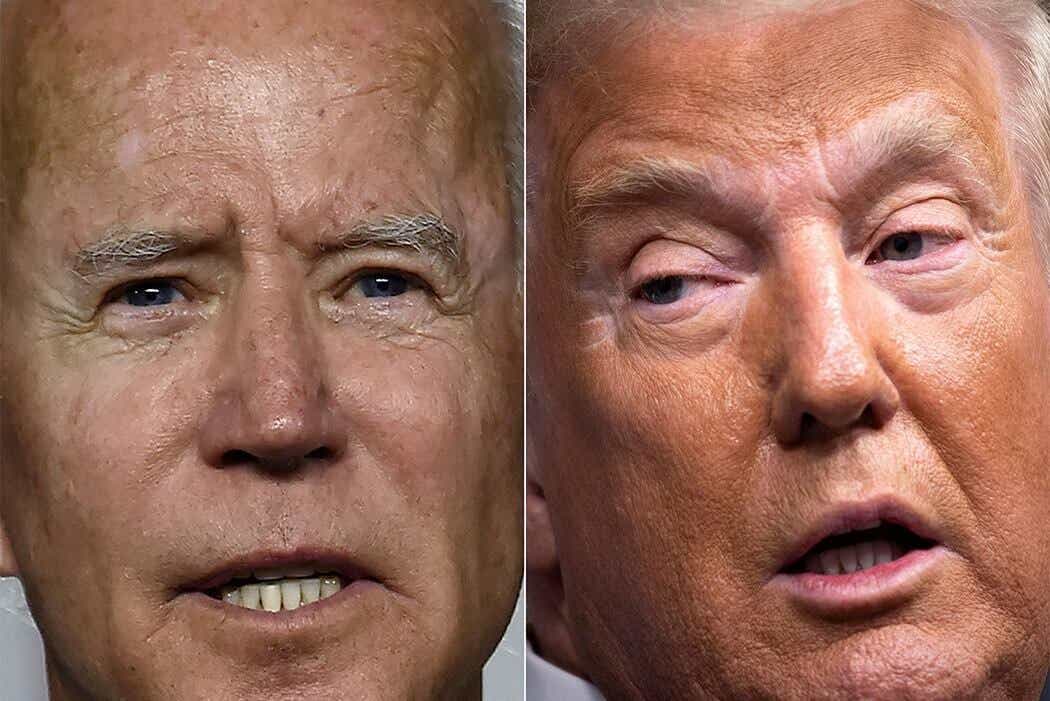President Trump and Democratic presidential nominee Joe Biden are poised to face off in a highly-anticipated first debate in Cleveland, Ohio. Moderated by “Fox News Sunday” anchor Chris Wallace, the debate is expected to look a little different this year compared to previous presidential debates due to the coronavirus pandemic and social distancing guidelines.
Both candidates will appear onstage, but far apart and won’t shake hands. In terms of the audience, between 75 to 80 people are expected to attend — all of whom have already been tested for Covid-19. Political debate expert Mitchell McKinney believes this revised format could potentially work in Biden’s favor given his communication style.
McKinney happens to be something of an expert on the matter as a professor of communication and director of the Political Communication Institute at the University of Missouri. He is also the author or co-author of nine books exploring political campaign communication, including An Unprecedented Election: Media, Communication, and the Electorate in the 2016 Campaign.
McKinney argued that the president, in particular, tends to feed off the energy from large crowds as seen in his rallies — and a sparse crowd could affect his debate performance.
“There seems to be a great desire for adulation — for public reinforcement, particularly for Donald Trump,” he said. “So that’s why I think with an audience that is either very sparse or taken out of it — it could affect Donald Trump’s performance.”
McKinney said while the president likes to taunt his opponents, he argued that Biden on the other hand is “much more reserved, methodical [and] contemplative,” and therefore “an event that doesn’t have that high energy crowd reactions may actually play to Biden’s communication style.”
Still, McKinney acknowledged that Biden’s style has also lent itself to criticism. During the primary debates, the former vice president was criticized for sometimes appearing to lack energy or focus. The president seized on this take by often referring to him as “Sleepy Joe,” and casting him as an establishment politician with deteriorating mental abilities.
Before Tuesday’s presidential debate, the president demanded that Biden be subjected to a drug test, once again suggesting without evidence that his Democratic opponent takes performance-enhancing drugs. The demand was later laughed off by the Biden campaign.
“Vice President Biden intends to deliver his debate answers in words. If the president thinks his best case is made in urine he can have at it,” Kate Bedingfield, Biden’s deputy campaign manager, told The Washington Post in response to the president’s remarks.
This comes as both candidates both face equally high stakes going into this first debate. For the president, who has been lagging behind Biden in national polls, the debate represents one of his last chances to shift how Americans view the election and reach voters beyond his base. It could also give him a chance to address controversial topics that he has found himself at the center of — including, the recent New York Times report that found he paid just $750 in federal income tax in both 2016 and 2017.
Biden, meanwhile, must make his case to disillusioned Republican voters and prove that he can be an effective leader in the midst of multiple crises. But, as veteran Republican strategist and fervent Trump critic Mike Murphy notes, this comes with both some opportunity and some risk.
“For Biden to break through and show he’s sharp and on top of it, that’s an opportunity but also a risk,” Murphy told the Los Angeles Times. “If Biden has a bad debate, Trump has a whole month to exploit it.”
McKinney similarly told Wake-Up Call that there will undoubtedly be one moment from the debate that will be replayed over and over again in what he refers to as “the pass-along effect.” In other words, voters will be informed by what moments are replayed and shared across social media. He argued that this influence should be by no means underestimated, particularly in what’s expected to be a close election.
“To influence just a small slice in a race with the dynamics that we have currently, it can be significant,” he said.
This originally appeared on Medium.









